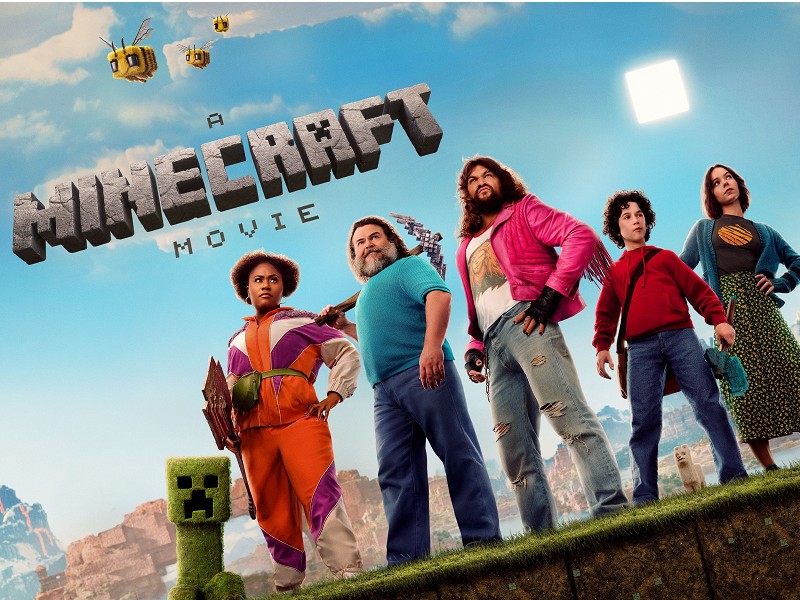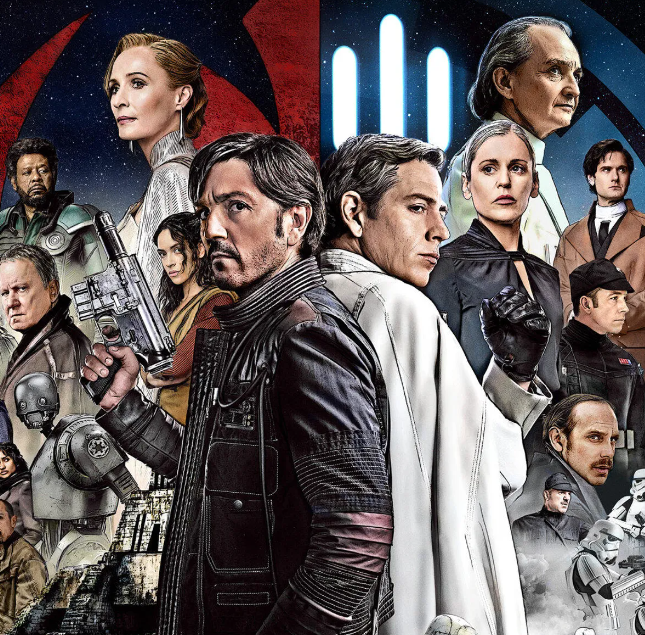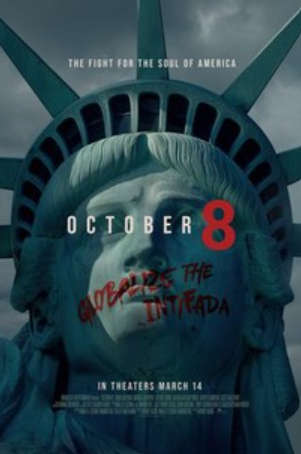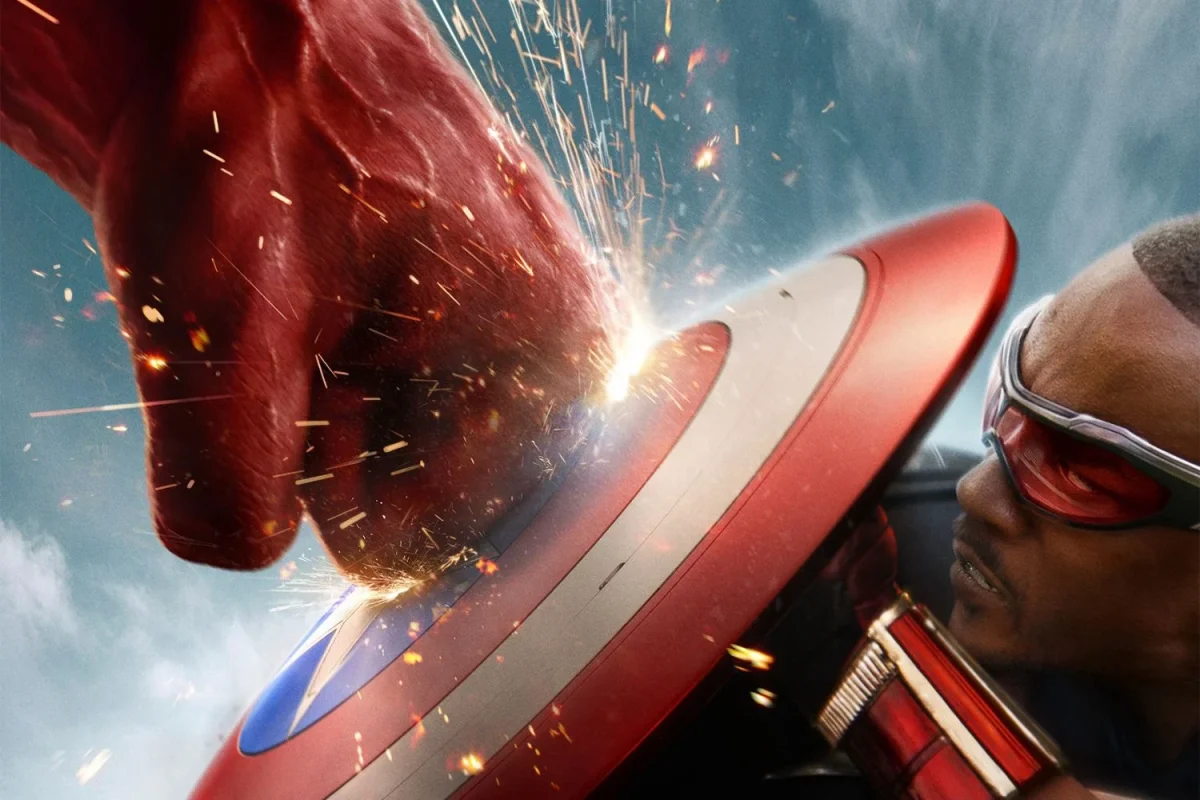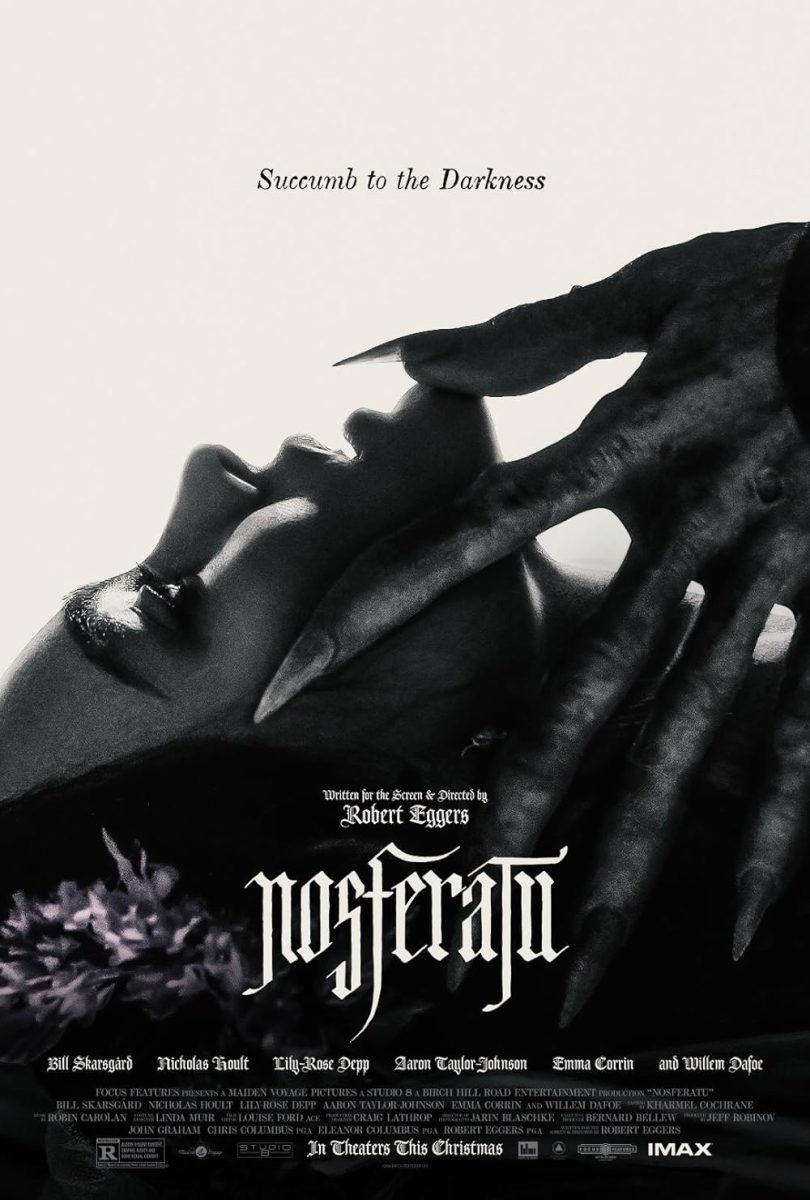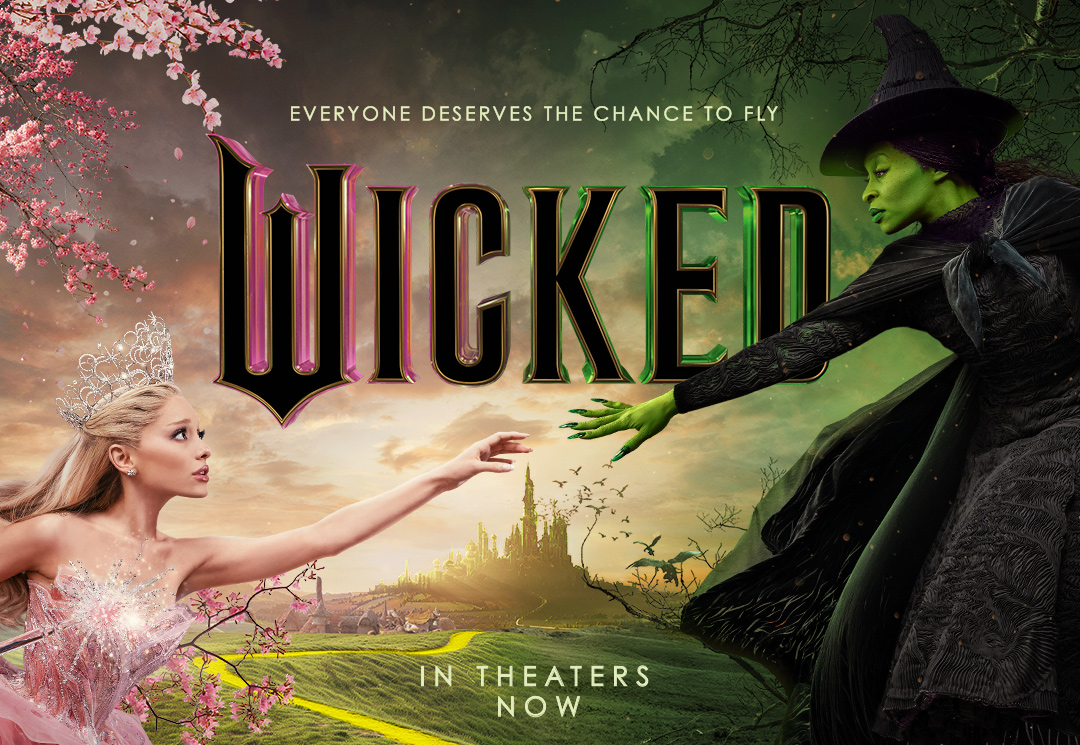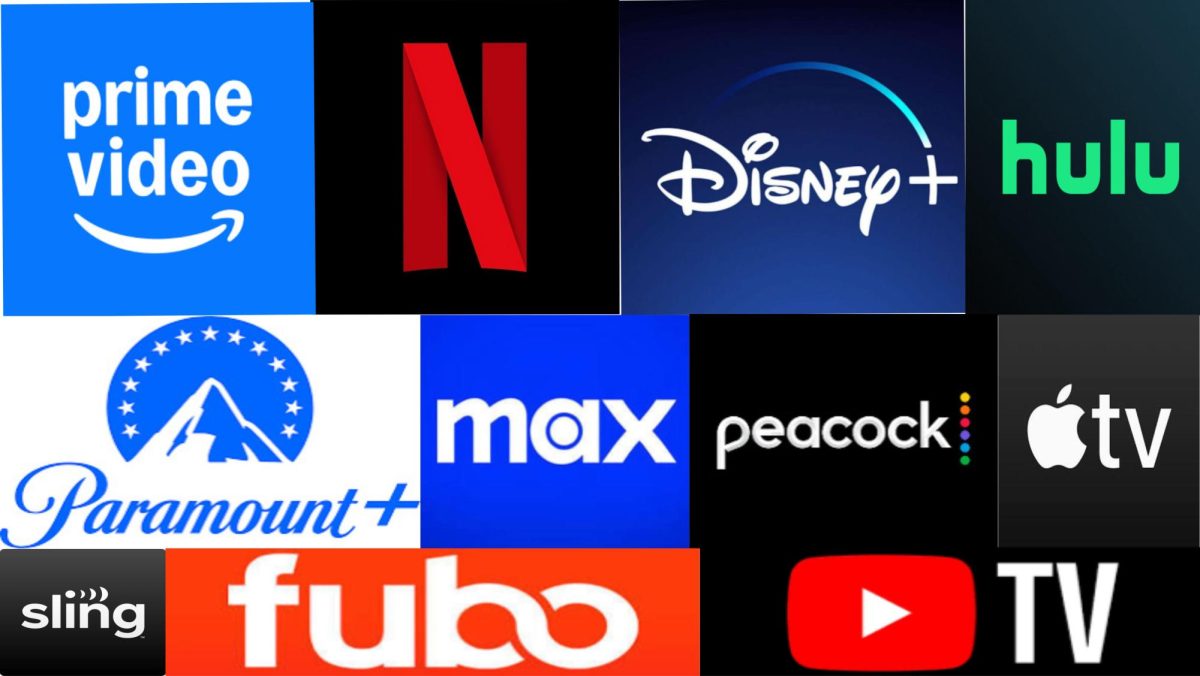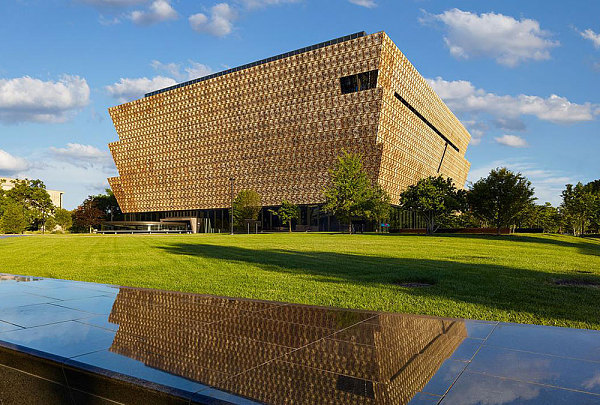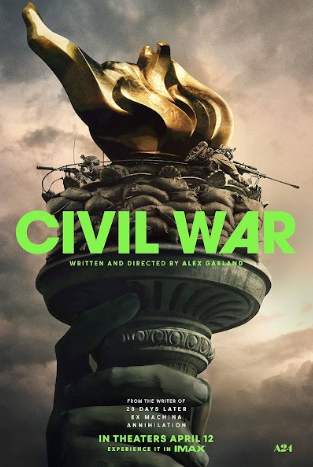
When the world is going up in flames, make sure to grab a camera. That seems to be a recurring theme in Alex Garland’s new movie, “Civil War”, a blockbuster that has received both criticism and acclaim ever since hitting the big screen on April 24, 2024.
Dropped into a futuristic United States in the midst of a violently divisive civil war, the viewer must quickly get accustomed to loud noises and blood-curdling visuals with little to no context. This lack of exposition continues throughout the movie, with little information provided, for the viewers to truly situate themselves in the characters’ world. In fact, it seems to be an intentional choice by Garland for the film to feel as though it is a reflection of a historical event that had truly happened, one that the viewer would already understand, rather than a fictional event that required explanation by the characters.
The movie follows four journalists on a mission to cover first-hand accounts of the war but more importantly, to be the first ones to get the scoop on any and all stories. Legendary photojournalist Lee Miller, played by Kirsten Dunst, and her partner Joel, played by Wagner Moura, both work for the Reuters news agency and have set their minds on driving from New York City to Washington DC in the hopes of interviewing the president, played by Nick Offerman. They are joined by the seasoned and older reporter Sammy, played by Stephen McKinley Henderson, who writes for “what’s left of the New York Times” and Jessie, played by Cailee Spaeny, a beginner photojournalist who tags along much to Lee’s annoyance.
While the story is set with a backdrop of a vicious civil war between the seemingly fascist government and the Western Alliance (WA), a group of militias from California and Texas, it is truly a narrative about journalists pursuing the story at any and all costs. The trailers and movie have been picked apart for their supposed criticism and prediction of U.S. politics and current events but, while the movie does provide subtext on the dangers of alienation and xenophobia, the focus is actually on the impact and power of journalism in shaping the world.
The movie starts and finishes with an air of ambiguity that forces the viewer to draw their own conclusions about the state of the world in this futuristic setting: who are the good guys (if there are any), what is each side’s ultimate objective and, perhaps most importantly, do the main characters care which side wins? These questions, however, only begin to scratch the surface of the bigger question being asked: Is it a journalist’s responsibility to tell the story as it happened or to choose a side?
The incredible cinematography brings the story to life as viewers watch a mentorship begin to develop between Lee and Jessie. In fact, a parallel storyline of the movie is the “passing of the baton”, so to speak, between generations as it becomes evident that Sammy played a similar role for Lee when she was an up-and-coming journalist. This new relationship introduces a separate conflict into the storyline that builds a more emotional connection for the viewers as they watch the many violent overwhelming scenes play out.
It should be cautioned that “Civil War” does not follow the traditional story arc that viewers are accustomed to in movies as it has several emotional “lulls” followed by intense scenes of loud noises, fear and death. Although it has a climactic ending, “Civil War” is likely to leave the audience initially unsatisfied as the “full-circle” moments that are characteristic of movie endings aren’t revealed until much reflection is done by the viewer.
Although it requires several trigger warnings and likely some thinking and introspection, “Civil War” is a worthwhile movie that will likely be the center of one’s mind for days after its screening. It is a must-watch in a world that is increasingly polarized and relies on the whims of journalists to stay both informed and divided.






